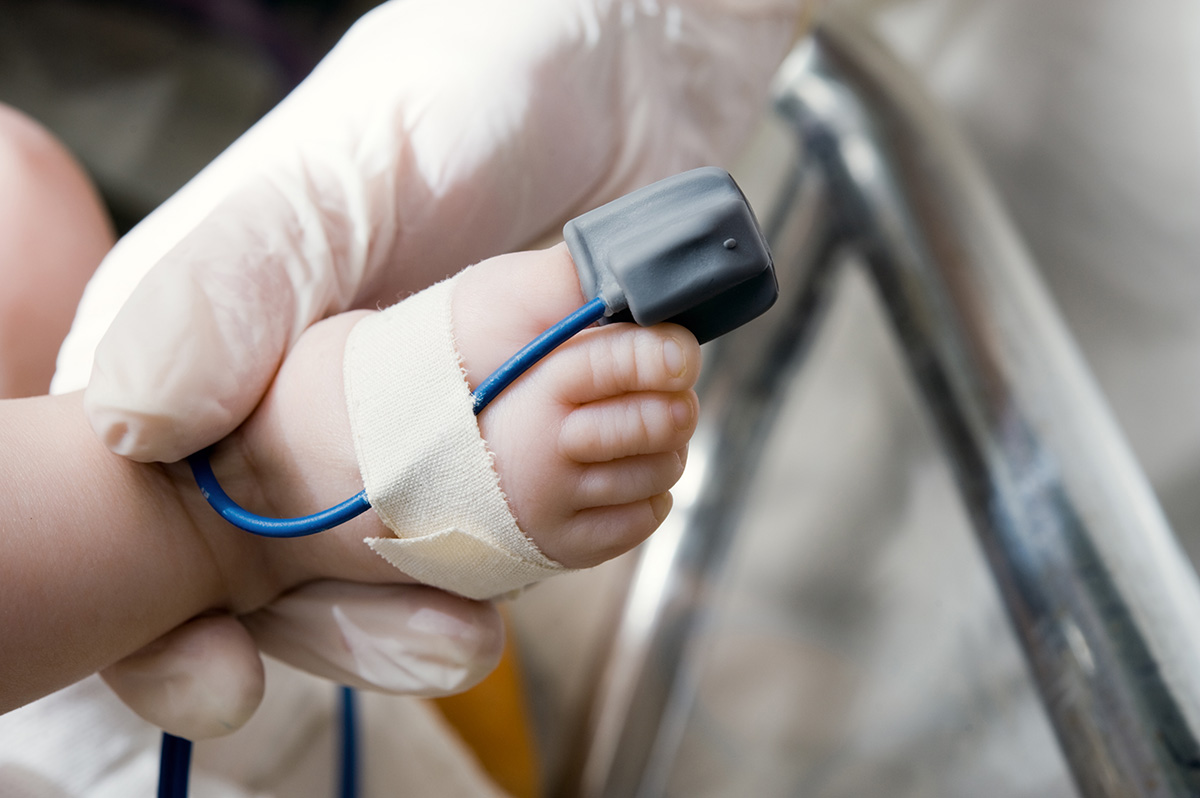Feature | Celebrating Success: Idaho Requires Newborn CCHD Screening Using Pulse Oximetry

The ACC and other advocates celebrated a major victory for infants born with critical congenital heart disease (CCHD) with the adoption of IDAPA 10.02.12, a rule that adds CCHD screening to the uniform screening panel in Idaho. After successfully passing through several Senate committee hearings and closing the Idaho legislative session on March 31, this rule became effective in Idaho on July 1.
Congenital heart defects are the most common birth defect and leading cause of death due to congenital malformations in children under the age of 1 year old. While CCHD screening using pulse oximetry is one method for detecting infants with some severe forms, other methods include prenatal ultrasound and clinical assessment in the newborn period.
Early detection and intervention is associated with improved survival and decreased morbidity, and the goal of CCHD screening is to identify infants in well-baby nurseries who have CCHD prior to discharge from the birth hospital. Once identified, these infants can receive life-saving cardiovascular surgery or cardiac catheterization interventions required to prevent heart failure, circulatory collapse and often death.
In 2011, the ACC joined other pediatric medical societies in recommending that CCHD screening using pulse oximetry be implemented for use in all newborn well-baby nurseries. In addition to hosting early stakeholder meetings at ACC’s Heart House — which ultimately led to the addition of the CCHD screening to the U.S. Recommended Uniform Screening Panel — ACC local state chapters engaged in providing cardiologist and nurse testimony, contributing to comment letters, publishing op-ed pieces, and completing radio interviews in support of CCHD legislation and rulemakings.

In the past eight years, the ACC and its allies in pediatrics such as parent advocates have achieved state legislation and regulation or medical guidance in all 50 states to require newborn screening for CCHD. All of this was done during a time when new regulatory initiatives are not looked upon favorably in most states. What an accomplishment!
A recent study published in the Journal of the American Medical Association makes a compelling case validating state action, where mandatory CCHD screening is associated with a 33 percent decrease in infant cardiac deaths compared to states without screening policies.
Congratulations to the ACC and other advocates for their work to ensure that all newborns in the U.S. are screened for CCHD prior to hospital discharge!
- Thirty-six states, along with Washington, DC, have enacted laws requiring newborn screening for CCHD (most require pulse oximetry screening), with 14 states having either promulgated regulations (12) or provided guidance on newborn screening for CCHD.
- ACC Chapters were significantly involved in legislative and regulatory campaigns for newborn screening for CCHD in the following states: California, Oregon, Texas, Oklahoma, Virginia, Ohio, Kentucky, Missouri, Nevada and Idaho. Cardiologists testified in California, DC, Maryland, Mississippi, Missouri, Nevada and Vermont. Nurses testified in Nebraska, Maryland, DC, Virginia and Michigan.
This article was authored by Lisa A. Hom, RN, clinical program manager for the critical congenital heart disease program at Children's National Health System in Washington, DC.

